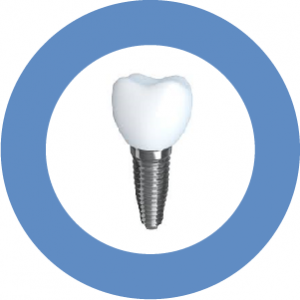
Diabetes and Dental Implants in Berkeley
What really sets dental implants apart from other teeth restoration methods is the fact that they are fused to your jawbone through a process called osseointegration. During this process, the implant fixture, which makes up one of the three parts of a dental implant, is accepted by your jawbone and gums as a natural piece of your oral anatomy. In order for your dental implants to provide you with their full range of benefits, it is very important that this process is a success.
It is possible, however, for certain habits and medical problems to interfere with osseointegration, resulting in the dental implant failing. For example, smoking has been proven to increase the chances of peri-implantitis occurring, as well as making it much harder for your implants to heal. While we have much experience with successfully providing our patients who smoke with dental implants, the fact is that the rate of success for implants in these patients is much lower than it is for a non-smoking patient. For a long time, this same logic has been applied to diabetics, and they have been denied treatment with implants as a result.
A study conducted in 2013 is quickly beginning to change this mentality. This study (Debey, Gupta, and Singh [2013]) states “Success of dental implant in well and fairly controlled diabetic patients with proper treatment planning, prophylactic remedies and adequate postsurgical maintenance appears as good as normal individuals.” Put another way, as long as a diabetic patient is in control of their sugar levels and is adequately monitored, then the chances of their dental implant treatment succeeding are just as high as a patient without diabetes. This means that it is fully possible for patients with diabetes to pursue treatment with dental implants.
Call and Schedule a Consultation with Dr. Dailley
Because there is still so much to learn about diabetes and how it may or may not affect the dental implant process, the candidacy of a diabetic patient can only be determined on a case by case basis. Here at our practice, we have had a great deal of success providing “non-traditional” patients with dental implants. If you would like to find out if your might be a candidate for treatment with dental implants, we encourage you to contact us and schedule a no-obligation consultation with dental implant provider, Dr. Anthony Dailley, today.
